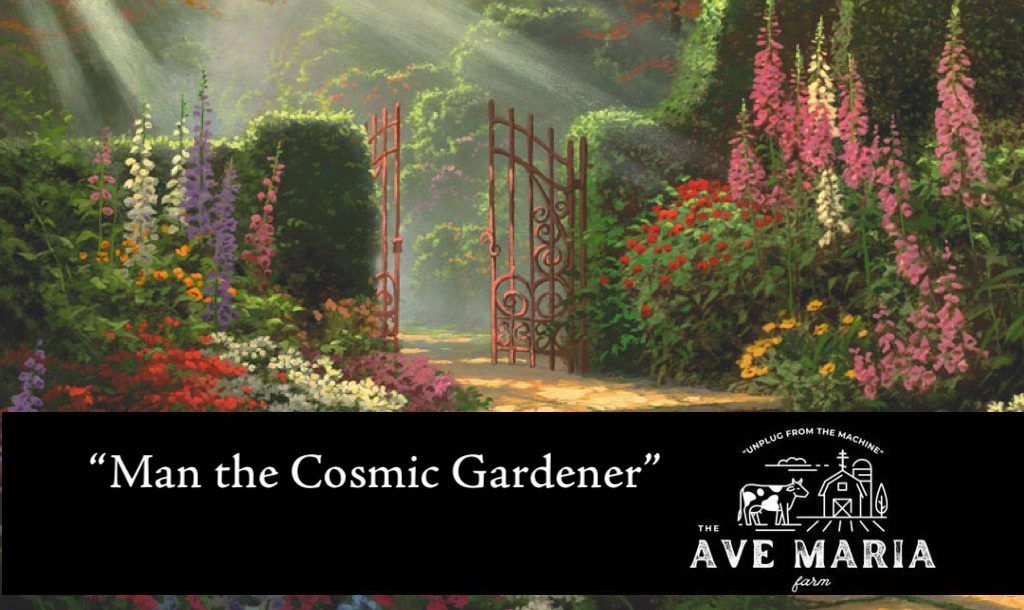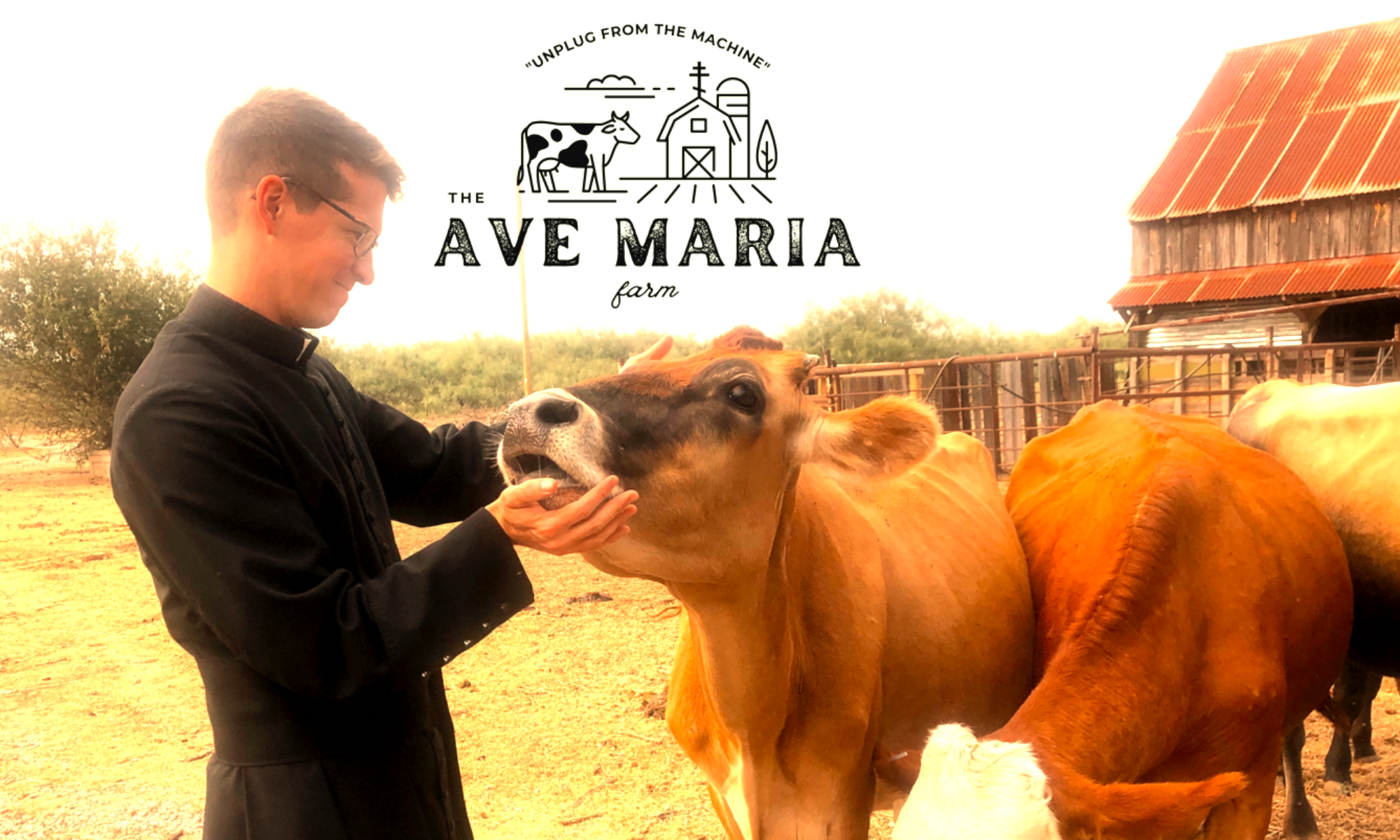
Man the Cosmic Gardener
“The Lord God planted a garden in Eden, in the east, and there he put the man whom he had formed.… The Lord God took the man and put him in the garden of Eden to work it and keep it”(Genesis 2:8, 15).
Our role on earth is to a be cosmic gardener. We are here to cherish, listen to, and nurture the garden that is creation.
Where is God in Creation?
God is transcendent and imminent. He transcends all things and permeates all things. The Church Fathers discuss this paradox with the terms ‘essence’ and ‘energy.’
Theokritoff explains: “The great value of this formula is that it enables us to conceptualize, and therefore live with, the paradox that God is both utterly unknowable and can be participated in. God-in-himself is inaccessible to creatures; but the divine power and energy of God at work in the world is also God, only in this case God-in-relation-to-creatures” (63).
We are Standing on Holy Ground
All creation is charged with God’s “ineffable, supranatural and divine fire” (St. Maximus the Confessor).
“God is ‘encoded’ for us in everything that he has made. We are surrounded on every side by his ‘letters,’ his ‘analogies’ in creatures, and our task as rational beings is to spell him out. The implications of this are clear: just as we revere the Scriptures, treating even the physical book with respect, and (more importantly) striving not to distort the text to suit ourselves, so we are to reverence the ‘book’ of creation” (Theokritoff 57).
Where Does Man Come In?
“Man is a ‘natural bond’ bringing everything into unity around himself; and because he is also a ‘mid-point’ between Creator and creation, he is to bring everything into unity with its Creator. To this end, man is endowed with a ‘natural power to unite what was divided’: male with female, the world of human life with paradise, earth with heaven, the sensible world with the intelligible, and ultimately, creation with the Uncreated…Man is called to draw all things together around his own nature so that God may be all in all” (Theokritoff 66).
“Man the microcosm — made of the same stuff as the mosquito — receives the divine inbreathing for the sake of the whole creation: ‘in order that the earthy might be raised up to the Divine that the one grace might pervade the whole of creation’ [The Great Catechism]” (Theokritoff 67).
In the words of St. Gregory the Theologian, man is: “a great cosmos in miniature; another angel, a ‘hybrid’ worshipper, a full initiate (or: overseer) of the visible creation and initiated also into the intelligible [angelic] creation; a king of things on earth, but subject to the King above…A creature trained here and en route to somewhere else and — the ultimate mystery — deified by its tendency towards God” (68).
The Manner in Which We Are Meant to Reign as King
As king of creation, man is meant to reign, admire, and enjoy. St. Gregory describes our kingly role in creation in his work On the Making of Man. Theokritoff summarizes: “The Lord makes the world as a palace for man, sparing no effort in making it beautiful…There are some things that man is meant to rule over; others, that he is meant to admire. And above all, he is to enjoy the world in such a way as to come to know the Giver…The King does not have the right to use his realm however he likes; he is to use it in certain ways laid down by God”
Man must reign as king according to the way God reigns. Our lordship must mirror His Lordship, with virtue and justice.
Our Lordship is Cosmological
“The responsibility that goes with our dominant position is not primarily administrative, but doxological. Our ‘power’ is directly related to our responsibility to refer all creation to God, to offer conscious praise on its behalf” (Theokritoff 79).
“Adam’s work in paradise was to make sure that he kept the relationship with God” (83).
Our Vocation Is To Be Anti-Consumeristic
“Let him eat of every tree, but of the tree of the knowledge of good and evil” (Genesis 2:16).
We were meant to partake of creation in a God-centered way, not to satisfy imbalanced appetites. Theokritoff writes: “What then does the fall consist in? The tree of knowledge, St. Damascene says, can be understood as ‘physical, hedonistic eating’; it is a surrender to our ‘natural connection to things’ which man was intended to transcend. The fall, we might say, solidifies man in his animal nature. It makes him merely a top predator, a ‘consumer.’ The world around us [becomes] no longer a revelation of our, and its, Creator, but a resource to satisfy our appetites” (84).
“The world of the fall, however, is one in which this constant reference to God is banished from the equation. Creation is there to satisfy my wants…[The Fathers] regarded greed as a grave spiritual sickness, whether its object was money, possessions, or luxuries of various kinds…the form of idolatry” (Theokritoff 89).
Greed and Paganism
“Greed and paganism are opposite sides of the same coin: and the coin is counterfeit, because it lacks the image of ‘the King above’…Whether we degrade nature into a collection of commodities to serve our appetites, or exalt it into a god that we then serve, there is a common thread: the Creator is shut out of the picture. Consumerism and neo-paganism are reactions against each other within a closed system. The source of value and hope in people’s lives, the ‘good’ that they aspire to — whether or not it is explicitly called ‘sacred’ — is confined within the created order itself” (Theokritoff 9O).
Idolatry, neglect, and consumerism are all deviations from our proper place in creation. It is our task, in the 21st century today, to rediscover what a healthy relationship with nature looks like and step up to our vocation as cosmic gardener.
